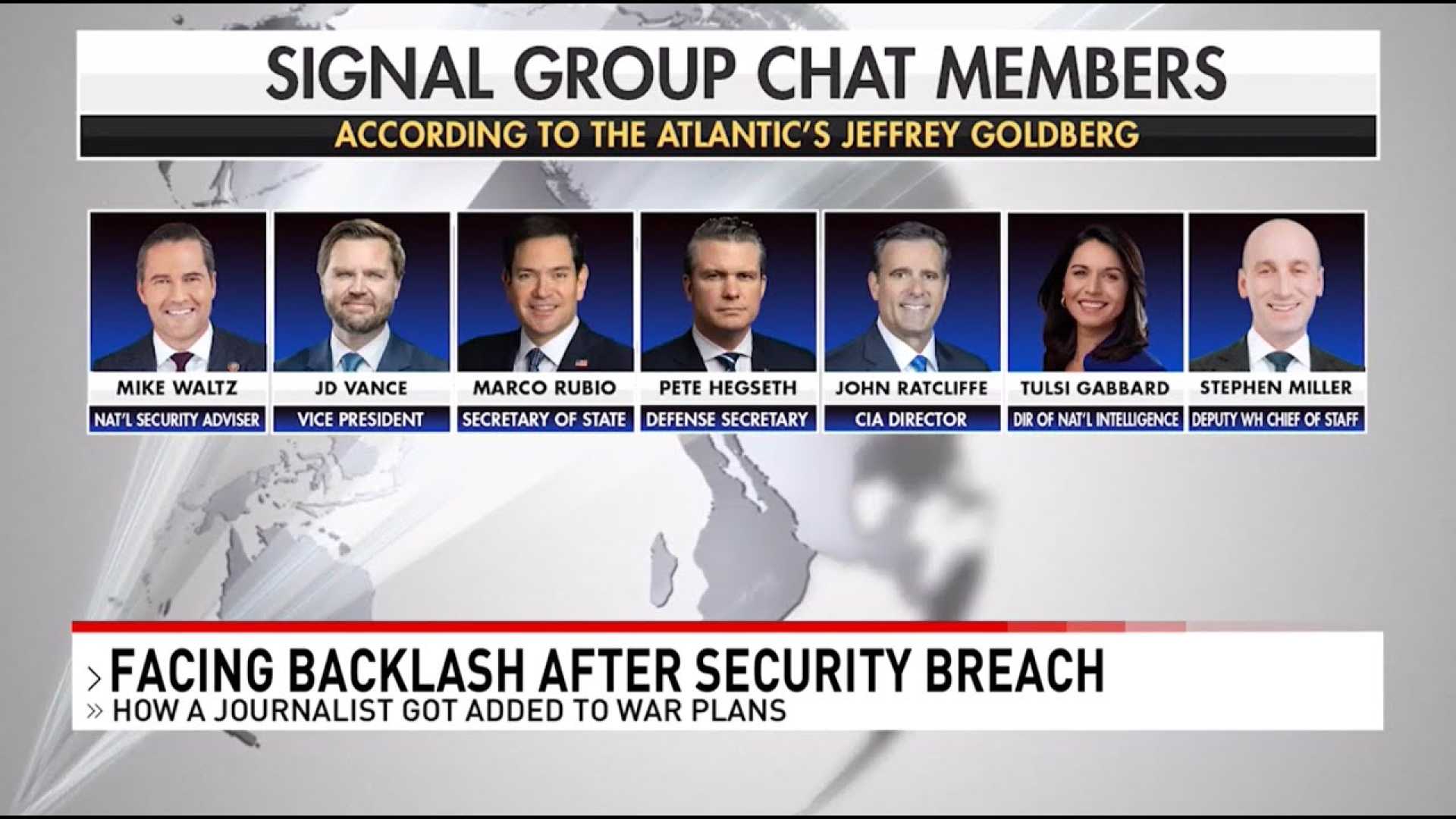Politics
Trump Officials’ Signal Chat Leak Sparks National Security Concern

WASHINGTON, D.C. — A significant security lapse within the Trump administration came to light on March 15, revealing that national security adviser Michael Waltz accidentally added journalist Jeffrey Goldberg to a Signal chat group where high-stakes discussions regarding an imminent attack on Houthi targets in Yemen were taking place.
The breach, confirmed by multiple sources, allowed Goldberg a front-row seat to conversations that included sensitive operational details, raising alarms about potential implications for national security. This incident highlights the challenges posed by utilizing commercial messaging platforms for classified discussions.
Goldberg was inadvertently invited to the ‘Houthi PC small group’ chat on Signal, an encrypted communications app popular for its supposed security benefits. The chat featured numerous senior officials debating the timing and rationale behind U.S. military strikes on Yemen.
According to reports, Waltz had shared a detailed plan for the attack at 11:44 a.m. eastern time, revealing specifics about targets and weaponry that were to be utilized. Just hours later, the U.S. military launched air strikes that reportedly killed at least 53 people, according to the Houthi-run Yemen health ministry.
The conversation in the Signal group unfolded quickly, as feedback and concerns were raised regarding the planned attack. In a text message obtained by The Atlantic, Waltz communicated with the group saying, “We are currently clean on OPSEC,” referencing operations security.
Later in the proceedings, Waltz recommended maintaining strict communications privacy, acknowledging, “Waiting a few weeks or a month would not fundamentally change the calculus.” These exchanges indicate the pressing decisions being made and the need for tight operational control.
Waltz later took full responsibility for the inclusion of Goldberg in the chat during an interview with Fox News, asserting, “I will ensure that this does not happen again.” The attempt to downplay the security breach has ignited discussions across political spectrums, with some commentators accusing the administration of recklessness.
Press Secretary Karoline Leavitt reaffirmed the president’s confidence in Waltz and the national security team, stating, “There was no classified information transmitted in the group chat.”
Nonetheless, security experts and legal analysts have raised concerns that even non-classified operations can compromise national security if they are discussed in unsecured channels, potentially jeopardizing American personnel.
On his part, Goldberg opted to leave the chat following the initial revelations about its content, worried that sensitive information may have implications for U.S. military operations.
The text messages circulated in the group chat have urged calls for investigation into the Trump administration’s communication protocols, revealing a larger conversation about appropriateness and security risks inherent in using unencrypted messaging systems for government operations.
Lawyers with experience in national security issues noted the potential violations stemming from relying on Signal for discussions considered outside of government-approved systems, which could lead to disciplinary actions against officials involved.
As investigations continue, Donald Trump’s response has included backing Waltz, stating to reporters, “Michael Waltz has learned a lesson, and he’s a good man.” Meanwhile, concerns linger over the management of sensitive military information and the protocols in place to protect U.S. interests amid ongoing international tensions.












